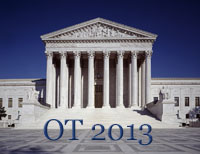Third Circuit Rules on Use of GPS Technology
This short post is not the promised second part of my intended series on what the Seventh Circuit did during your summer vacation. But, it may interest those of you who follow developments in the criminal law. In a much-anticipated decision with parallels to United States v. Brown, 744 F.3d 474, 476 (7th Cir. 2014), the en banc Court of Appeals for the Third Circuit held today that pre-Jones warrantless use of GPS to collect data about a suspect did not require suppression of the GPS-evidence under the exclusionary rule. The case is United States v. Katzin, No. 12-2548 (3d Cir. Oct. 1, 2014).

 Part One: Supervised Release
Part One: Supervised Release